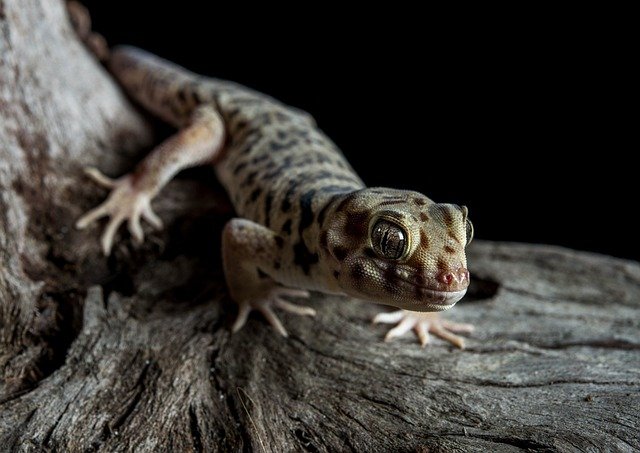Geckos and Our Misperceptions.

Greeting all friends...!
Here are seven mistakes we make about Tokay Gecko.
1. There is only one type of gecko, namely Gecko gecko
In nature, there are at least 44 types of gecko and the Gecko gecko is one of them. The Gekko genus includes Gekko athymus, Gekko albofasciolatus, Gekko auriverrucosus, and Gekko badenii. Of all the geckos, the gecko is the best known.
2. Gecko Gecko is only at home
This house gecko is widespread in nature. In Indonesia, it can be found in Sumatra, Java, Sulawesi, Kalimantan, Nusa Tenggara, and Natuna. Tokay Gecko is also found in eastern India, Nepal, Bangladesh, Myanmar, southern and eastern China, Thailand, Peninsular Malaysia and the Philippines. It is called the house gecko because it is often seen in residential areas or residential areas as well as gardens and forests. Its territorial voice, which often sounds scary, indicates its presence somewhere.
3. Unimportant to nature
Of course, geckos play a vital role in maintaining ecosystem balance by eating insects. Automatically, it controls the insect population to prevent an explosion. If the geckos run out, the food chain will be broken so that the balance of the ecosystem is disturbed. Like other lizard species, geckos actively hunt at dusk and at night. Not infrequently, geckos descend to the ground to chase their prey. During the day, he usually sneaks on the roof of a house, in a wood hole or between rocks.
4. Toxic
The gecko is not poisonous, it just has strong jaws so if it bites it will be difficult to release. This is what underlies the myth, a gecko's bite will not come off without a thunderous sound. According to Awal Riyanto, Reptile Researcher at the Indonesian Institute of Sciences (LIPI), the meaning of this myth is that the gecko's bite is strong. The more we fight, the harder the bite will be and it will cause injury. The first thing we have to do is "calm" to let go of the bite. So far, the Gecko gecko has been recorded as having the strongest bite.
5. As a drug for HIV/AIDS
According to Awal Riyanto, throughout the research conducted, geckos do not yet contain certain substances to fight the HIV virus. However, as a myth, in China geckos are believed to have properties as a traditional medicine for fitness or a tonic mixed with other herbs. Geckos have long been traded as traditional medicine throughout almost all of Asia, but a sharp spike occurred in 2009 due to the belief that geckos can cure HIV/AIDS. In fact, the world health organization WHO (World Health Organization) has denied this assumption.
6. As a skin medicine
In Indonesia, there is a myth that consuming geckos can cure skin diseases. According to Awal, although there is a claim that this is true, it has not been proven to be true and there has been no intensive research that states this "efficacy".
7. Captivity
The initial aim of captive breeding was to reduce direct capture in nature through breeding results. In captivity, geckos can lay 3 to 4 eggs, each laying 2 eggs with an incubation period of 2 months. This breeding does not depend on quotas but on how much the breeding unit produces. What must be criticized is whether the breeding complies with the rules or not.
Thank you all for your visit, hopefully it is useful.
Thank you, friend!


I'm @steem.history, who is steem witness.
Thank you for witnessvoting for me.
please click it!
(Go to https://steemit.com/~witnesses and type fbslo at the bottom of the page)
The weight is reduced because of the lack of Voting Power. If you vote for me as a witness, you can get my little vote.
Upvoted. Thank You for sending some of your rewards to @null. It will make Steem stronger.